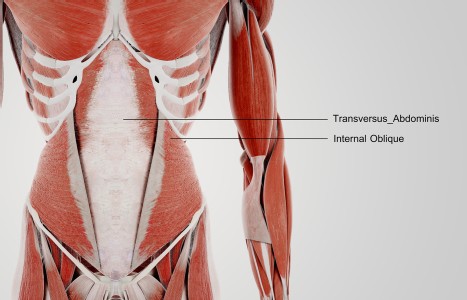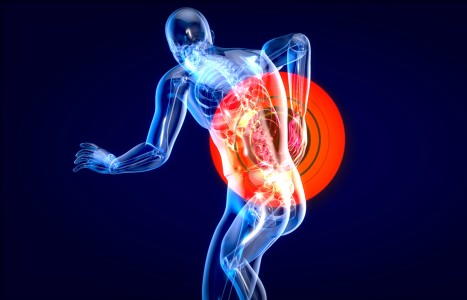TrA-2, my primary needle location, I needle 95% of the time and I think it works the best. You’ll know you have the right point location when you discover the muscle twitching when applying electric stimulation.
FAOM Debates Definition of Acupuncture With Florida Board
On June 19, 2004, the Florida Association of Oriental Medicine (FAOM) delivered a presentation to the state Board of Acupuncture regarding a potential conflict in state law regarding the definition of acupuncture. The FAOM's presentation is listed below for review. This presentation will also appear in print in the September issue of Acupuncture Today.
* * *
Florida Association of Oriental Medicine, Inc.
4505 West Flagler Street, Suite 202
Miami, FL 33134
June 19, 2004
Re: Board of Acupuncture Meeting
We come before you this day as a consequence of the Administrative Rule Update 64B2-11.012 entitled "Application for Acupuncture Certification Examinations" by the Board of Chiropractic Medicine.
The issues that bring us before you are twofold: the definition of acupuncture and the standard necessary for its safe application as reflected by the disparity of same as between FS 457 & FS 460, the reference being to the regulatory Boards of Acupuncture and Chiropractic Medicine. But for clarification, there remains a conflict in law, for which we beseech the Board of Acupuncture to intercede and redress this conflict within the Department of Health pursuant to the provisions of Statute FS 456.012 (3) entitled Board Rules Challenges.
A forbearance to resolve this conflict raises the concern that a protection of the public is compromised, that a state of confusion to the public is manifest, and that a question of the integrity of its application is unclear, and with the likelihood of marginal benefit to the public or worse harm with inappropriate application.
We submit to you two supporting correspondences, one from the American Association of Oriental Medicine (AAOM) and the other from the Acupuncture and Oriental Medicine Alliance (AOMALLIANCE).
We submit to you two additional correspondences to the Board of Chiropractic Medicine.
We demur to any issue of standing by our chiropractic colleagues regarding acupuncture; however, the Legislature in its wisdom has conferred upon two regulatory boards differing meanings for it, thereby creating a conflict in law. Acupuncture should mean acupuncture with a single definition and yield to the public a reasoned understanding of its interpretation from which a clear choice of healthcare is more accurately identifiable, and without which there occurs confusion at the least and likely harm at worst.
This conflict is rooted in the different definitions and disparate standard that each board has created with the result that the public will construe incorrectly that the procedure of acupuncture stands with equanimity amongst all providers and, furthermore, is in jeopardy of harm when it is applied in the absence of appropriate requisite diagnostic application.
The definitions from each board are differentiated by reviewing Board of Acupuncture FS 457.102(1)&(6) against Administrative Rules entitled Chiropractic Principles & Practice, Chapter 64 B2-17.003: Acupuncture.
The standards are differentiated by reviewing Administrative Rules: Acupuncture Program Requirements 64 B1-4.001 & Supervised Clinical Experience 64 B1-4.0015 against Administrative Rules Chiropractic Examination & Principles and Practice, 64 B2-11.013 & 64 B2-17.003(4).
You will note that FS 457.102 (1)&(6) defines acupuncture as a "...an expression of the application of Traditional Chinese Medical concepts....' to include, but not limited to needle insertion, moxabustion, electroacupuncture, chi kung, Oriental massage, herbal therapy, dietary guidelines, etc. By contrast, Chiropractic Principles & Practice 64 B2-17.003(1)&(4) defines acupuncture "...as a modality...' that "...stimulates various points...interrupts the cutaneous integrity...to secure a reflex relief ...by nerve stimulation....proper administration of acupuncture requires a thorough knowledge of physiology, anatomy, therapeutics and diagnostic acumen.'
There are several aspects of the differing language that demonstrates the divergence in concept with resulting conflict; however, this is not the venue for such elaboration. It is sufficient to demonstrate that there exist two very different definitions for the same word and that such difference is of a material nature that infers a professional and public concern.
In reviewing the standards we first draw your attention to Acupuncture Program Requirements 64 B-4.001 establishing some "...1,155 hours of supervised instruction in Traditional Oriental Acupuncture ...& 660 hours of supervised clinical experience'. Further that the requirements for those having graduated after October 2003 the standard is some 2,700 hours of supervised instruction. Rule 64 B1-4.0015 describes and defines "supervised clinical experience'.
We next draw your attention to the Chiropractic Acupuncture Certification 64 B2-11.012(3)&. 013 wherein you will note the requirement of "...knowledge in anatomy & physiology of point and point locations, therapeutic and diagnostic acumen...meridian therapy, and the stimulationof various points ....', with a minimal requirement of what had been some mere 100 hours.
Herein is the first reference to some element that merits attention in that it offers a means of identifying the necessary distinction that is in conflict, namely the phrase meridian therapy. In reconciling this conflict it is of first import to establish an identification that resonates a clarity to the public that which is offered to them. Meridian therapy stands apart from acupuncture and satisfies both definition and in part issues of standard.
It is only necessary to herein establish that there exists a difference in the standard that allows for the sanctioned application of acupuncture. We assert that the differences in both definition and standard are of a material nature and sufficient to be of professional & public concern.
We deem that conflict resolution to be the more propitious manner of reconciling the prevailing conflict in law in an amicable & professional manner within the Department of Health. A review of FS 456.012 (2)&(3) identifies the conditions to be satisfied for different types of challenges and differing mechanisms available, all aimed at conflict resolution.
We are asking that the Board of Acupuncture consider the appropriateness of FS 456.012 (2) wherein we direct your attention to the right available to either the Secretary or the Board to affect a negotiated rulemaking committee for the purpose of addressing anticipated strong opposition FS 120.54(d)1: Rulemaking.
We are asking that the Board of Acupuncture consider the appropriateness of FS 456.011 (5), which establishes a simultaneous right by the Secretary or the Boards to establish a special committee to settle their differences.
We thank you in advance for your handling of this issue of professional & public concern.


